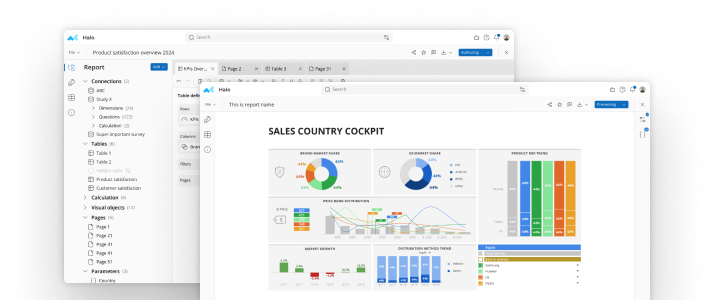How do you create smart survey questions?
Learn the basics to creating smart survey questions.

Learn the basics to creating smart survey questions.

Creating smart survey questions can provide a wealth of information on topics near and dear to your business. As a Market Research Manager looking to identify potential trends, pricing strategies, or ways to maximize overall company profits, a good survey is an art form; one that is sometimes difficult to master.
Keep It Simple
A good jumping-off point would be to adjust the language you use within your survey to the level of your audience. This will simplify things and mitigate any potential confusion in responses. So, keep your wording:
In order to get better response rates and cleaner research data, do your best to find alternative wording for any industry-specific verbiage, acronyms, or other complex technical information, as this could be confusing to respondents. They may simply skip these questions altogether.
Never Force; Instead Ask Politely
Questions involving a respondent's privacy may also be a tough sell, including such personal questions as:
In order to provide enough assurances or incentives that these private matters will stay private start with a "prefer not to answer option" for respondents. In addition, confidentiality assurances can also go a long way toward providing them with proper peace of mind when answering.
It's All About Order
Look to implement broader (i.e.: more general) questions at the beginning of your survey. This will serve as a warm-up of sorts for respondents as you ease into more specific questions. And end the way you began, with more general (easy) questions.
Do Not Use Biased or Leading Words
It's imperative to limit any potential bias in a respondent's answers. Words such as "could," "should," and "might," sound close to the same but may actually produce differences in agreement to the question.As well, stronger wording -- a word like "prohibit" for instance -- can influence a responders' answers, too. And, in many instances, the survey questions themselves can be leading to prospective responders. Thus, you may be leading them to answer one way or the other without even knowing it.
Specificity, Please
A double-barreled question -- one that asks two questions in the guise of one -- can rightly confuse a prospective respondent. For example, asking "what is the fastest and most economical Internet service?" asks too much; the fastest available service isn't always the cheapest option. So, which part of the question do they answer then?In the end, to create smart survey questions that are understood by all is the goal. To keep it simple, be specific in what you want, and understand the "no-no's" of question creation, is to get closer to a fairer, more accurate, and thus, truly beneficial data pool for your company.
Get the latest market data, reports, and research across a spectrum of industries at mTab.
Make smarter decisions faster with the world's #1 Insight Management System.
